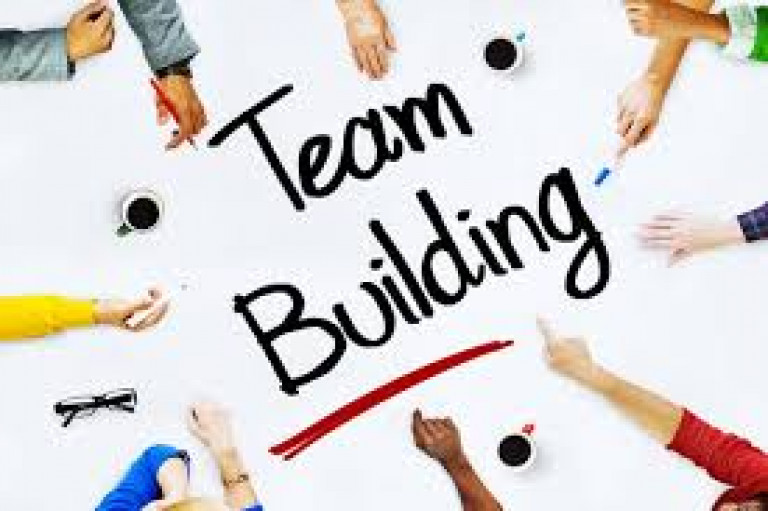
Learning how to build trust in teams will be a crucial lesson that will lead your team to great success. Having trust in teams allows the business get the best out of their employees and aids them in creating successful and effective teams.
Trusts is generally defined as the ‘firm belief in the reliability, truth or ability of someone or something. It is a psychological state influenced by the complex interrelations between expectations, intentions and dispositions’.
In regards to business, the International Association of Business Communicators defines trusts in organisations as “The organisational willingness, based upon culture and communication behaviours in relationships and transactions, to be open and honest, based on the belief that another individual, group, or organisation is also competent, open and honest, concerned, reliable and identified with common goals, norms and values”.
Stephen Convey also defined trust existing in an organisation as confidence, and the feelings that one employee has for another employee about their capability and reliability, which is supported by their past actions. He also defined a lack of organisational trust as feelings of ‘suspicion’ between employees.
There are two types of trust within teams and organisations, both of which are important and crucial aspects for increasing team effectiveness and employee happiness. The first is team trust, which is trust at a team level and refers to trust that is collectively shared among team members. The second type is interpersonal trust, this refers to trust at an individual level, the dynamic and relationship between pairs of employees in the team.

Google spent years trying to figure out what made an effective team. What mattered the most to the employees at google? It was trust (and psychological safety, the extent to which the team is a safe place to take interpersonal risk and that team members feel accepted and respected).
So... Why is trust in an organisation so important?
Firstly, it is undeniable that people work better when there is trust. Whether its a team in the workplace, a romantic relationship between two people or a friendship - everything is more successful when its foundations are based on trust.
Research has shown that teams with who have more trust actually perceive better task performance, team satisfaction, relationship commitment and feel less stressed. Other studies have supported this, finding that teams that felt trust between them had increased commitment, increased perceived task performance and they were generally more satisfied.
Trust within an organisation can strengthen team and employee relations, creating more satisfied employees and reducing turnover. Trust within teams can also build teams that have high interdependence, close cooperation, better teamwork and increased flexibility.
Employees will work better when they feel that there is trust within their team because they are proud to be part of that team. They will feel trusted to share their ideas and they will feel that they can rely on other people in their team to accept their ideas. If there is trust within a team, employees will also feel that they can count on others to not put their ideas down or belittle them.
High levels of trust within a team also encourages risk taking and facilitates the sharing of information and knowledge which encourages collaboration and enhances productivity. Studies have found that trust is related to team effectiveness, and that personality-based trust causes increase knowledge sharing, which inreturn makes teams more effective.
More importantly, a lack of trust in an organisational team creates a hostile environment that makes employees unhappy and decreases the effectiveness as decisions aren’t made, ideas aren’t shared and none of the employees feel comfortable working together.
Studies have shown that trust mediates team conflict and it has been shown that teamconflict, when handled badly, can dramatically decrease a teams effectiveness. Therefore, trust is a key factor in reducing conflict, which could make your team unhappy, unsuccessful and ineffective.
How to improve team trust
Firstly, it’s important to notice the signs of low organisational trust. There will be a sense of a sluggish and a low engaging environment. Morale will be low, productivity will be low, turnover rates will be high and the team won’t collaborate together or ‘gel’.
Teams with low trust are normally stuck in the ‘storming’ stage of Bruce Tuckman’s group formation model they constantly push against boundaries and challenge each other. Unfortunately, many teams stuck in the storming stage fail to reach success,as they can’t move forwards - so this is why it is crucial to develop trust in your team.
One way to move a group out of the 'storming' stage is to get them to become personal with each other. One of the most effective ways to do this is to get them to understand each other personalities; read this article to discover ways in which you can get your employees to understand each other personality and work style.
Become an engaging and trusting leader
In order to engage and promote team trust, it is crucial to start at the top with the team leader. Do they trust others? As Harrold MacMillian once said “A man who trusts nobody, is apt to be the kind of man nobody trusts”. The team leader must be trusting and they must promote team trust to their colleagues. Surveys have shown that trust in the leader is an indicator of team performance.
The team leader should also lead by example, be passionate, empathetic, credible, rewarding and considerate. They should get to know their employees, find out how many kids they have, what their pets are called, where they went on holiday last year - become personal with them so that they feel they can trust you.
After these personal relationship have been developed, the team leader needs to become responsive to their colleagues personal facts, details and needs. They should engage in conversations with their colleagues, tell them about their personal life and answer any non-related work queries they have.
Also, the team leader should be responsive in terms of business conversations too and get back to their colleagues efficiently. This is a crucial part of trust building as studies have shown that perceived responsive relationships between colleagues increased trust levels.
The team leader should be transparent and open. Employees like to feel in the loop and involved in information sharing and decisions making. Leaders should encourage honest dialog between employees and they should communicate whole team problems with every member of the team.
Also, being open and transparent will encourage knowledge sharing. This sharing of knowledge amongst teams has been shown to increase trust and improve skills, making the team more effective.
However, although having the correct leader will dramatically increase the teams effectiveness and is the starting point for promoting trust. The team leader can’t build trust all by themselves. Its a team thing and therefore the whole team needs to be engaged in developing trust for each other.

Establish values and goals
One of the crucial parts of creating trust within a team is to establish team values and goals. If all employees understand the mission of the team and what their working towards it will make them determined and give them a drive to reach that goal.
Establishing goals and values creates a sense of community, cohesion and culture within a team - the idea that everyone in a team is collaboratively working together to achieve the same results is a really powerful motivational factor in teams. Also, research has shown that trust affects group performance indirectly by challenging employees energy towards team goals.
Another way of increasing trust is to ensure that all the team members values and goals are similar, and that they match each other expectations. In order to gather employees expectations create a series of questions, such as “how do you expect your ideas to be dealt with”, or “how do you think we should work towards our goals” and then put all the responses (anonymously) into a document and share it with all employees. This will make sure that everyone is aware of how others feel the team should be behaving, and how others feel the goals and values should be met.

Everyone must listen to each other
In a team, every employee must listen to everyone else’s ideas and plans. Trust will increase if people feel that they can openly share and express their queries, concerns or ideas. This sharing and consideration of everyone’s ideas creates a massive sense of cohesion and psychological safety, which will in return increase the teams effectiveness.
A task that will increase employee listening skills and engage them is called ‘improvisation’: in this task, one employee makes a simple statement such as ‘I went to the park yesterday’ and the other employees provides a statement or phrase that is close to the story line. This task will encourage employees to listen to each other and give them transferable skills they can use in everyday tasks.
Fun but effective tasks that encourage team trust
One way to build trust is to use team building exercises that focus on trust.
If you're looking for an online based trust-building activity you can try something like QuizBreaker.

QuizBreaker is a fun weekly quiz delivered by email that helps teams get to know one another better in just 2 minutes per week. It's used by teams all over the world (including Google, Paypal and Mars Confectionery) to build trust and communication in a fun easy way. It comes with a 21-day free trial.
Click here to learn more about QuizBreaker
It is important to remember that these exercises must have clear and defined goals and objectives, make sure that all activities are designed for building trust (not just having fun) and to make activities intense and challenging but light hearted to build healthy competition. Some examples to try include:
- The blind wine waiter: employees get into teams of six and have to successfully remove the cork and pour a bottle of wine into five glasses. In the team, five people are blindfolded and each person can only do one task.
- Dream trips: gather everyone together and ask how the would spend their time and money if they were allowed a whole month away from work. This task encourages employees to share personal details and desires, which in return, creates trust.
- Slice and dice: get the team to stand in two lines facing each other with their arms extended so that they intersect. They employee at the end of the line will walk down the centre and person will raise their hands to allow safe passage. This requires each employee to put trust in their team to allow them to walk down the centre, it’ll also increase the employees confidence.
For more team and trust building ideas, read this article.
Introduce an online forum
The introduction of an online forum will build trust in teams by allowing a ‘safe’ place where employees can openly discuss and communicate their ideas, thoughts and even share common interests.
This would be a great way to allow employees to become more personal and connected with each other and a way in which employees can communicate their ideas at any point in time. This idea is particularly beneficial in remote/virtual teams, or teams where the employees will not always get to work with, or see each other.
Similarly, this online forum can be used to align interests when personal information is shared. As said above earlier, employees thrive off responsive relationships, and they feel a sense of trust to employees that offer responsive relationships. Naturally, people will be more responsive if they are interested in what the other person is talking about, so aligning interests can create relationships between employees that will create a sense of community, belonging and trust.
However, one problem of this is the problem of cliques - employees may form ‘gangs’ with other employees that they share similar interests too, making other employees feel left out and therefore actually decreasing the trust, morale and productivity of the team.

Overall, in a team there are many ways to gain trust, and this article has briefly summarised a few of the most effective ways to develop and maintain trust within a team. Ideally, to create a stable and trusting environment it would be best to start at the top, with the leader, and then work down towards the rest of the team.
When working with your team, make sure they are aware of the teams values and goals, and of each other’s values and goals.
Make sure they listen to each other and are collaborative. Create an online forum, and align employees based on the interests they have expressed in these online forums.
Finally, perform a series of objective, but fun team building trust activities that will allow for the development of personal and trusting employee relations.
However, it is important to consider that trust is built over time, it is not a quick fix to ineffective teams - building trust requires engagement and investment over weeks, if not months from all employees in that team.
Also, a final point to take away - you must always remember that mistrust is contagious, once the trust is completely broken within a team, it can be a battle to regain it again.




